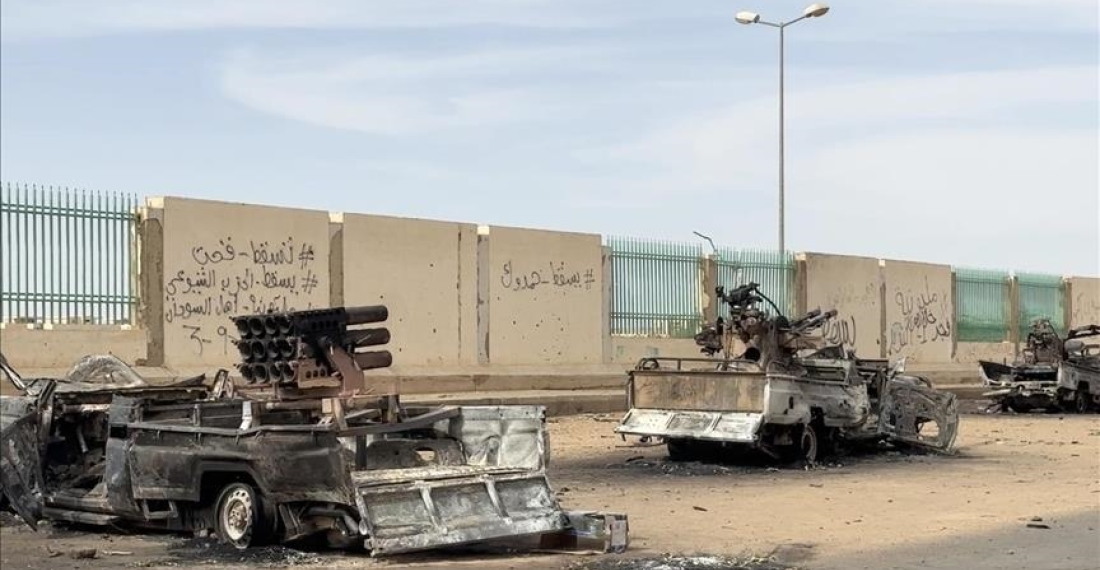This editorial first appeared in the 25 April 2023 issue of our newsletter, Arabia Concise. If you would like to subscribe to Arabia Concise, or any other of our newsletters, please click here.
"A long conflict in Sudan, just across the water from Saudi Arabia and the rest of the Arabian peninsula, will be destabilising for the region," writes commonspace.eu in this editorial. "Saudi Arabia, UAE, Qatar, Turkey and others all have influence in the country. They must resist the temptation to back one or the other of the warring factions and concentrate their efforts on first ending the fighting, and second ensuring a transition to an inclusive civilian government."
The processes that have been taking place in the Gulf region and the wider Middle East over the last year - which healed the schism within the GCC, reconciled Turkey with Saudi Arabia and the UAE, started the process of bringing back Syria within the Arab fold, and, even more dramatically, started the process of reconciling Saudi Arabia and Iran - appeared in recent days to have even reached Yemen, when the exchange of large numbers of prisoners during the Ramadan month, and the meetings between Saudi officials and the Houthi leadership, augured well for that painful conflict to be also finally resolved.
Yet, just as pundits hailed a new era of peace in the Middle East, Sudan erupted into a civil war that has already claimed hundreds of lives, and potentially can be hugely devastating.
Sudan is a country with many identities: Arab as much as African; a Red Sea nation, as much as a nation embracing the great Nile. It is poor, but its population had for a long time been considered to be better educated than that of most in the region. Britain ruled the country during the 19th and first half of the 20th century as a condominium with Egypt.
This odd constitutional arrangement resulted in the British setting up a separate civil service to run Sudan, separate from that of the Colonial Office. It attracted some of the most bright and enlightened young men of the time. The emphasis they put on education was one of the silver linings of an otherwise dismal colonial rule.
Sudan has shown that peace in the Middle East is, at best, a fragile business.
Since independence in 1956, Sudan has had a troubled history. The mainly Christian and animist South eventually separated after a long struggle, and is today the new country of South Sudan. Successive coups brought the military to power, and for nearly thirty years between 1989 and 2019 General Omar Hassan al Bashir was the strongman ruling with open support from Islamist groups including the Muslim Brotherhood, ostensibly as a civilian elected president.
When he was eventually deposed by the military after popular turmoil many in Sudan hoped that there could be a quick transition to civilian rule, and some kind of democratically elected government. But the men in uniform have not been so keen to hand over power. And to complicate matters, the Army also had to share power with a strong militia – known as the Rapid Support Forces – that emerged from the conflict with rebels in the west of the country. It was the latest attempt to absorb this group within the mainstream armed forces that eventually triggered the current conflict.
A long conflict in Sudan, just across the water from Saudi Arabia and the rest of the Arabian peninsula, will be destabilising for the region.
Saudi Arabia, UAE, Qatar, Turkey and others all have influence in the country. They must resist the temptation to back one or the other of the warring factions and concentrate their efforts on first ending the fighting, and second ensuring a transition to an inclusive civilian government.
The hasty retreat of the western diplomats from Khartoum, shows clearly that the west has little leverage here. The little it has now needs to be used wisely, and working with local partners.
Sudan has shown that peace in the Middle East is, at best, a fragile business.






